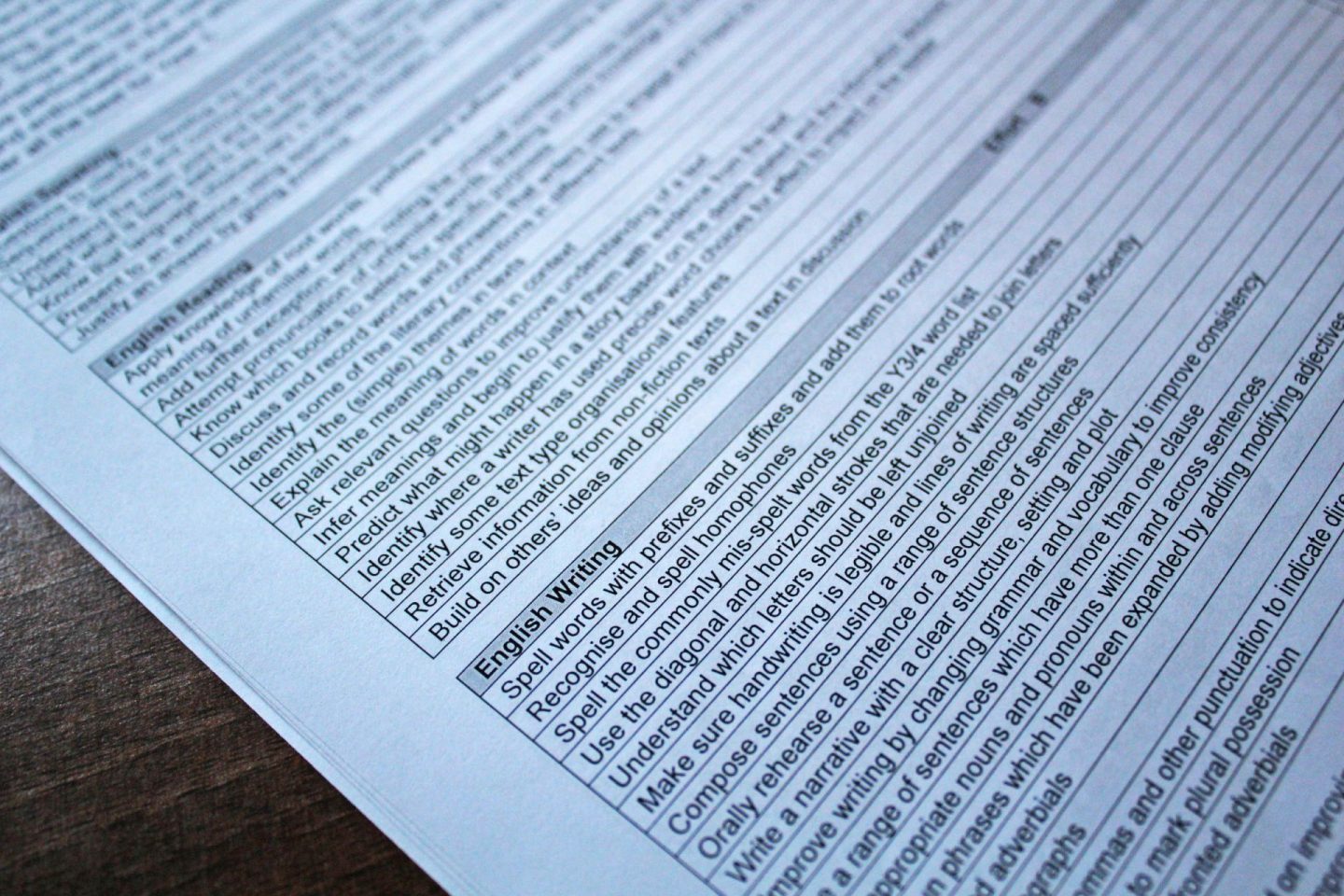When I was at secondary school, I had a chemistry teacher who was quite a character. He was very sarcastic and this appealed to me greatly. He also travelled to school every day on a motorbike, which gave him a slightly rebellious edge and made all the other teachers seem very boring in comparison.

I genuinely think this guy was a good teacher, but one year he took the strange step of asking us to write our own school reports. I thought this was an incredibly cool and progressive step for a teacher to take. Sure enough, when the report arrived at home, it was pretty much what I’d written, verbatim.
I happened to be on reasonably well acquainted with this guy’s daughter so I knew a bit about his background. Now I’m a bit older and more cynical, I don’t think this was an example of progressive teaching at all.
My chemistry teacher had recently gone through a divorce. I may be mistaken, but I think in his emotionally exhausted, post-divorce mind, getting pupils to write their own reports probably seemed like a great way to reduce his own workload!
Back in those days, school reports were handwritten. There was a brief summary written on small pieces of paper that were stapled together to make a small rectangular booklet. There was no grading against other people, no codes to decipher and it was all very straightforward.
If you have school-aged children, you’ll know that school reports in the 21st Century are immense documents. They stretch for pages and pages and are rammed full of data in tables that you have to interpret. They can take ages to decipher and can sometimes be contradictory.
I’ll give you an example. We’ve been in the situation whereby a teacher has said in their written comments that one of our kids has made huge effort in a subject, yet the data backing up that claim shows the opposite. It has at times been difficult to know what to make of the reports but Mrs Adams and I have always read every word and we’ve spoken openly about the reports with our daughters, Helen and Izzy.
On that point, I feel it is important to go through the report with my kids. I don’t want my children to be scared of the school report arriving home.
This year, thanks to it being Coronatime, school reports have been in a very different format. They have been single pages of A4, emailed to us in pdf format.
If I can be really blunt, I think this easy to digest summary has been far superior to anything we’ve received in the past. There’s been a summary from the teacher, a grade for effort and a summary of performance in English, mathematics and science.
They’ve been easy to read and given us the essential information. In fact, without all the data to wade through, we can be confident we’re not missing any essential details. Paranoia about missing something important has always being an issue with the lengthy reports we’d usually receive.
I only have the one criticism to make. I appreciate the importance of English, maths and science, but I would have liked a summary of other subjects as well. While these subjects are the building blocks of learning, I do feel our education system has a narrow focus and the constant treatment of maths and English in particular as ‘super subjects’ in school reports and also at parents’ evenings is testament to this.
This year’s report was great. I simply feel a slightly longer report with a summary of language learning, Physical Education, Religious Education, Geography etc. kept to two sides of A4 would have been an improvement.
This year’s shorter, summarised report beg two questions. Firstly, how much notice do parents take of school reports? Second, what is the best format for school reports?
In answer to the first question, I predict mums, dads and carers will take much more notice of 2020’s school reports. They’re just so much easier to read and better presented.
As for the best format, is there scope to keep them this brief in future? Would videos, an idea suggested to me by Ross Morrison McGill of the TeacherToolKit blog, be an even be a better option?
Teachers want to know the reports are being read. A report produced in video format would give the school confidence it was being watched as they could keep tabs on the metrics.
Maybe an online report is a good idea? It would be easy to produce a report that you had to log on to read. Again, teachers would know who had logged on and issue reminders to parents who weren’t reading the reports. Both these options, however, assume parents have the ability to use online systems.
I don’t know what the answer is, but has the paper school report had its day? I think there’s an argument that it possibly has. Even if not, the shorter, more concise reports issued during the COVID-19 pandemic present an ideal opportunity to start a discussion about the school report’s future.
Have you received a school report this year? If so, was it in a shorter format and do you approve? What do you think of the usual, data-heavy school reports? Would you support a move to videos or some other format? Why not leave a comment with your thoughts below.






